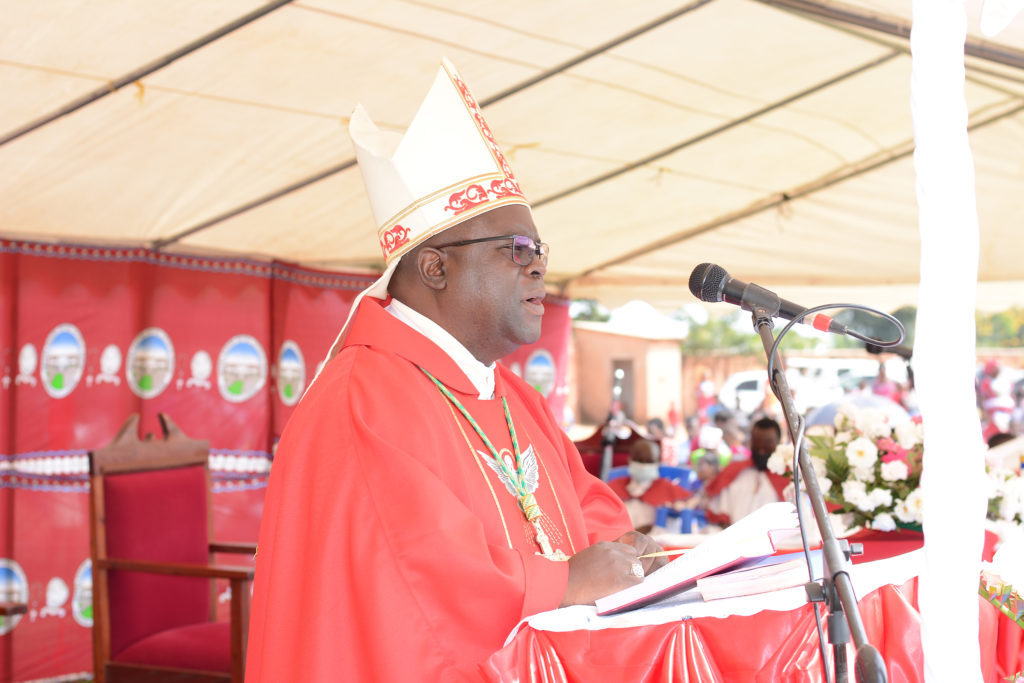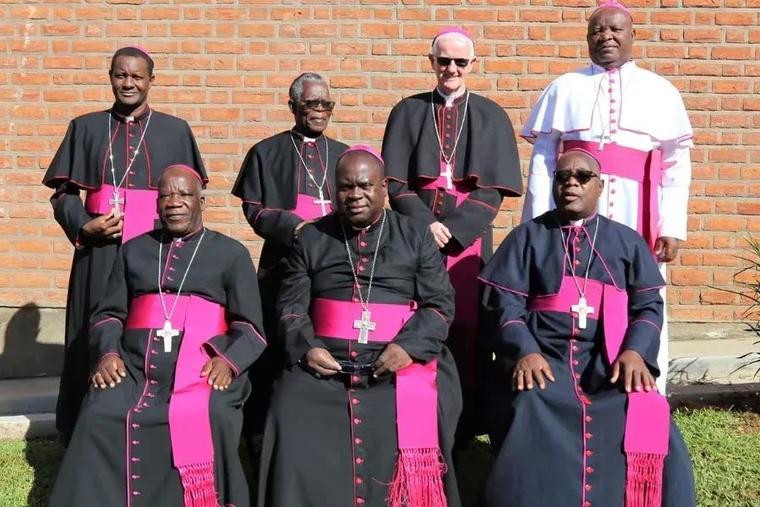MALAWI: ECM President Says They are Backed by Scripture, Tradition, and Magisterium of the Church

Archbishop George Desmond Tambala
Sam Kalimba
The President of the Episcopal Conference of Malawi (ECM) Archbishop George Desmond Tambala highlighted that the position of the conference on the Vatican’s ‘Declaration Fiducia Supplicans on the Pastoral Meaning of Blessings’ that was released Monday, December 18, is backed by scriptures, tradition, and magisterium of the Church.
Archbishop Tambala said this in response to the question of whether the ECM’s position not to allow the blessing of any kind of same-sex marriage, does not conflict with any Church protocols.
“The main reason we issued our position as a conference on 19 December is in reference to Scripture, Tradition, and Magisterium of the Church. This is where our faith is founded upon and has a greater bearing on our culture as Malawians,” The Archbishop of the Archdiocese of Lilongwe said.

The ECM’s response to the declaration expressed the wish of the conference and clarified the misinterpretation of the document that caused fear and anxiety to both Catholics and non-Catholics in the country.
“We, your Bishops, have noted certain erroneous interpretations of this declaration that have generated interest, fears, and worries amongst Catholics and people who look up to the Catholic Church for moral, spiritual, and doctrinal guidance,” began the letter.
The four-point statement agreed with the declaration and provided a deeper interpretation that was missed in the local media but ended up shutting the door for effecting the declaration in Malawi.
“To avoid creating confusion among the faithful, we direct that for pastoral reasons, blessings of any kind and for same-sex unions of any kind, are not permitted in Malawi,” reads the statement which concluded with words of comfort and encouragement to many Catholics who showed signs of loss of trust and hopelessness upon hearing about the declaration released by Rome through social media and discussions in their small Christian communities.
“While we understand the legitimate interest and fears this Declaration has generated, we wish to assure all Catholics and all those interested in Catholic teaching that the teaching of the One Holy Catholic and Apostolic Church on Marriage remains the one indicated in Paragraph 4′ “an exclusive, stable, and indissoluble union between a man and a woman, naturally open to the generation of children”.
Catholic media houses played a critical role within these days of the declaration by trying to interpret the meaning of the declaration in the context of Malawi.
Rev. Fr. Andrew Kaufa, the Coordinator for Social Communications in the Association of Member Episcopal Conferences in Eastern Africa (AMECEA) region, shared his observation after the release of the declaration.
“People are speaking from deep down their hearts. The anger they have speaks to the level of faith they have. Sooner or later the Church in Malawi will circulate synodality questionnaires for Christians to supply with responses. I pray that they will be able to share their sentiments in the manner they are doing now so that their position is considered in Rome,” Fr. Kaufa who is also a Consultant in the Vatican’s Dicastery of Communications since last year, said and continued, “I know the declaration has come in good faith but the understanding is different from this end. We have deep routed faith in this part of the world as evidenced by the increasing numbers of priestly ordinations and baptisms as compared to the same numbers in the West.”
Canonist Rev. Fr. Israel Madziakaphwa of the Catholic Diocese of Mangochi and Coordinator of the Catholic University in Lilongwe said that both the declaration and statement made by the ECM had canonical strengths. He said that the declaration did not flout any tradition, doctrine, or Canon of the Church but as long as it supports the value of natural order and Canonical marriage, the declaration was canonically correct.
When asked whether the Church in Malawi through the ECM statement of clarification conflicted with authorities, Fr. Madziakaphwa said that in no way did the local Church contradict the declaration. He said that as a conference, they were at liberty to find means of implementing the declaration after considering all factors.
“So, they have decided as a conference to turn a blind eye to the declaration as a means of effecting it. Who can question them? They have good reasons in their own right as they pastor the sheep under their responsibility,” said Fr. Madziakaphwa
END.


